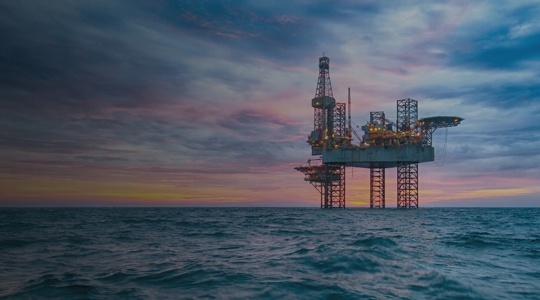The Dangers of Jack-Up Rigs
Jack-up rigs can capsize if they are not properly secured, and their equipment can malfunction if it is not carefully maintained. With all the electrical lines that it takes to operate the rig, fires and explosions are possible risks. Another common injury that jack-up rig workers can sustain is head trauma. From concussions caused by a blast or from tools that fall from a higher platform, head traumas are a regular occurrence. Additionally, the machinery is large, so there is always the risk that pieces of the machine can strike a worker, causing blunt force injuries.
Jack-up rig workers are in danger from a variety of different sources due to the complexity of operations. Statistics show that jack-up rigs are dangerous work environments. According to the U.S. Bureau of Safety and Environmental Enforcement, in less than a 10-year period, there have been more than 900 fires and explosions, 60 deaths, and 1,548 serious injuries related to offshore oil production in the Gulf of Mexico.
Weather conditions and rough seas can also affect jack-up rig workers. Hurricanes and tropical storms can endanger the lives of the entire crew on a jack-up rig if they are not evacuated in time. Offshore companies have an obligation to properly monitor hurricanes and other storms and bring workers to safety if warranted. Their failure to do so can have catastrophic effects. This happened to the Seacor Power, a lift boat that capsized off the Louisiana coast in April of 2021, claiming the lives of 13 crew members. It also happened to the Globetrotter II, a drillship that nearly capsized because she and her crew of 142 people were left in the path of Hurricane Ida in September 2021. The entire Globetrotter II crew thought they were going to die.
Studies have also shown that maritime employees are twice as likely to sustain a serious injury while on the job when compared to construction workers.
What Are Your Rights After a Jack-Up Rig Accident?
Jack-up rigs are known for moving locations in the same general area. Since jack-up rigs do technically move from one sea area to another, they are considered maritime vessels for maritime law. This means that many aspects of the Jones Act and various other maritime laws apply to jack-up rig workers. If a jack-up rig were not considered a maritime vessel, your jack-up rig employer would be difficult to sue.
For example, you can recover maintenance and cure, injury compensation, and much more under a Jones Act claim. The fact that jack-up rigs are considered Jones Act vessels means you have compensation rights under U.S. law. If negligence was involved, you will need the help of a seasoned attorney to craft a strong Jones Act case.
How Arnold & Itkin Can Help: Call Our Texas Lawyers at (888) 493-1629 Today
If you were involved in a jack-up rig accident, you may be entitled to compensation. You may not know where to turn after sustaining injuries at your offshore work environment, but that's what we are here for. Arnold & Itkin can evaluate your claim and determine what your legal rights are. The sooner you contact our legal team, the better chance you have of receiving the help you deserve. There are many different types of offshore accidents you can be involved in while working on a jack-up rig, but no matter what your injury, it would be in your best interest to seek the help of our legal team to offer you aggressive representation and the legal experience that you need.
Call (888) 493-1629 today for a free review of your jack-up injury case. Our attorneys have a history of securing the best results in the toughest cases. No matter what.
